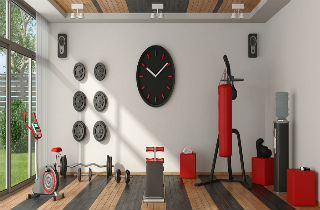Why Alcohol and Exercise Never Work Out
Written by Jennifer Taylor
You have just finished a tough workout at the gym. Would a drink be a nice reward or does alcohol wipe out all your efforts?
Think again.
Drinking packs on fat, slows down your metabolism, and robs your body of vital nutrients. Plus, craving a drink after working out can be a symptom of alcohol withdrawal. In this way, drinking alcohol goes against your exercise goals of health and fitness. Knowing the facts about how alcohol gets processed and what it does to your exercise routine can change your mind and in the end, benefit your workout. More here, with a section at the end for your questions about drinking, fitness, and common treatments for alcohol addiction.
How the Body Processes Alcohol
When you drink during or after exercise, your muscles stop their rebuilding process. Your original goal of getting stronger, having more energy and getting fit is delayed. Let’s look at what happens in the body when you drink after a workout.
Normally after a workout, your muscles need carbohydrates to rebuild. But if you drink after you work out, you interrupt the process. Alcohol enters your stomach and small intestines and gets absorbed into the bloodstream there. Alcohol then moves to the liver, where enzymes then break it down. Because alcohol prevents needed carb replenishment, you feel drained. But there’s more.
Your body processes about one drink an hour. If you have multiple drinks, the excess alcohol saturates your tissues and delays muscle synthesis and growth even more. How? If the liver cannot keep up with the amount of alcohol you drink, unprocessed alcohol is stored in body tissues, including your muscles. Alcohol stored in muscle tissues can hinder muscle growth after you exercise.
How Alcohol Causes Weight Gain
People exercise to lose weight and feel stronger, and most try to avoid habits that add unwanted calories and fat. But drinking can increase body fat in many people because of the empty calories. Alcohol has 7 calories per gram, which is less than fat (9 calories per gram), but more than protein or carbohydrates (4 calories per gram). When you drink alcohol, you are adding calories without adding any nutrients.
Some people like a protein drink or energy bar after a workout. Normally, your body burns these beneficial calories immediately because your body needs the fuel. But drinking interrupts that healthy process. When you drink alcohol, your body procceses the alcohol first in the liver, and then in the body tissues. The good calories from those proteins are put on hold while your body burns the alcohol instead. Good calories not burned right away can turn to just plain fat.
Should you drink after exercise?
A drink here or there probably won’t interfere with your fitness plan, unless you have to have it right after your workout. In fact, you may have a problem with alcohol if you find it difficult to stop drinking before, during or after your workout. If this is the case ,you may want to talk to someone and look into a certified alcohol treatment center. Alcohol is addictive and having a struggle with that is nothing to be ashamed of. You can manage alcoholism with professional detox and rehab help.
Exercise and alcohol questions
Do you still have questions about drinking after exercise? Please leave your questions or comments below. We do our best to respond to you personally and promptly.









Related Posts